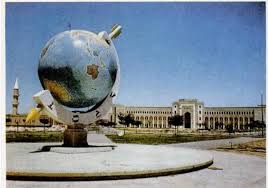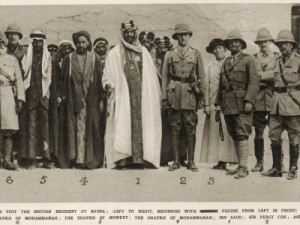Have Yourself a Merry Little——-> Kenny G. Holiday
“Additionally, the Saudis get a chance to deal Russia, Bashar al-Assad’s stalwart ally, a bloody nose, by driving down the cost of oil and hurting Moscow’s hydrocarbon revenue streams, which prop up a shaky domestic economy. As oil prices have fallen so has the value of Russia’s Rouble, plummeting 35% since June. Killing two birds with one stone would seem a smart policy, especially since it is highly unlikely to result in the sort of military escalation the Saudis wish to avoid. How long can the Saudis keep this game up? Realistically a few months, but if the price of oil keeps falling the Saudis may have to rethink their strategy……………”
Oil prices normally rise during times of economic growth in the USA and especially during periods of geopolitical turmoil as is happening in Eastern Europe and across the Middle East and Libya. But oil prices have been going down for some time now in spite of speeding US growth and turmoil in producing regions.
Some have predicted that the oil price decline may come to bite those who engineered them for political reasons, such as Saudi Arabia and the United Arab Emirates. It was also argued that the Persian Gulf Arab producers have huge sovereign funds that can cushion the domestic economic impact.
Fine and dandy, but we must consider the impact on the sovereign funds and on local GCC Gulf financial markets and on the public finances: (a) The Gulf sovereign funds are invested mainly in the world markets and are losing value as American and other markets decline with the price of crude; (b) Domestic GCC markets are now also tanking, from Saudi Arabia to Dubai, which will bring political pressure on the princes, shaikhs and potentates to support the stock markets. Many middle class families in the GCC are suffering huge market losses, estimated in many billions of dollars. In the Gulf, princes and potentates from Abu Dhabi to Riyadh rely on patronage as well as a ruthless mercenary security apparatus to keep absolute political power. Now there will be clamor for some more patronage to help market investors: you want to keep absolute political power, you gotta pay for it (from the people’s money, of course). Which in turn will create more pressure on the domestic budgets and on the value of sovereign funds.
In addition, now the oil price decline is beginning to be seen as a negative for the US economy. Odd, after decades of blaming the rise of the same variable for slow growth.
Given the shale fuel industry and the huge investments in it, as well as the importance of the major oil companies and their credit standing, the US economy now shares one thing with the Iranian and Russian economies. Some market ‘analysts’ now stress that the U.S. financial markets need oil prices to move up for the markets to rebound from recent losses. But does Main Street America need high oil prices back? That is unlikely.
Interesting: the USA, Iran, and Russia all ‘need’ higher oil and gas prices now.
Cheers
Mohammed Haider Ghuloum 










